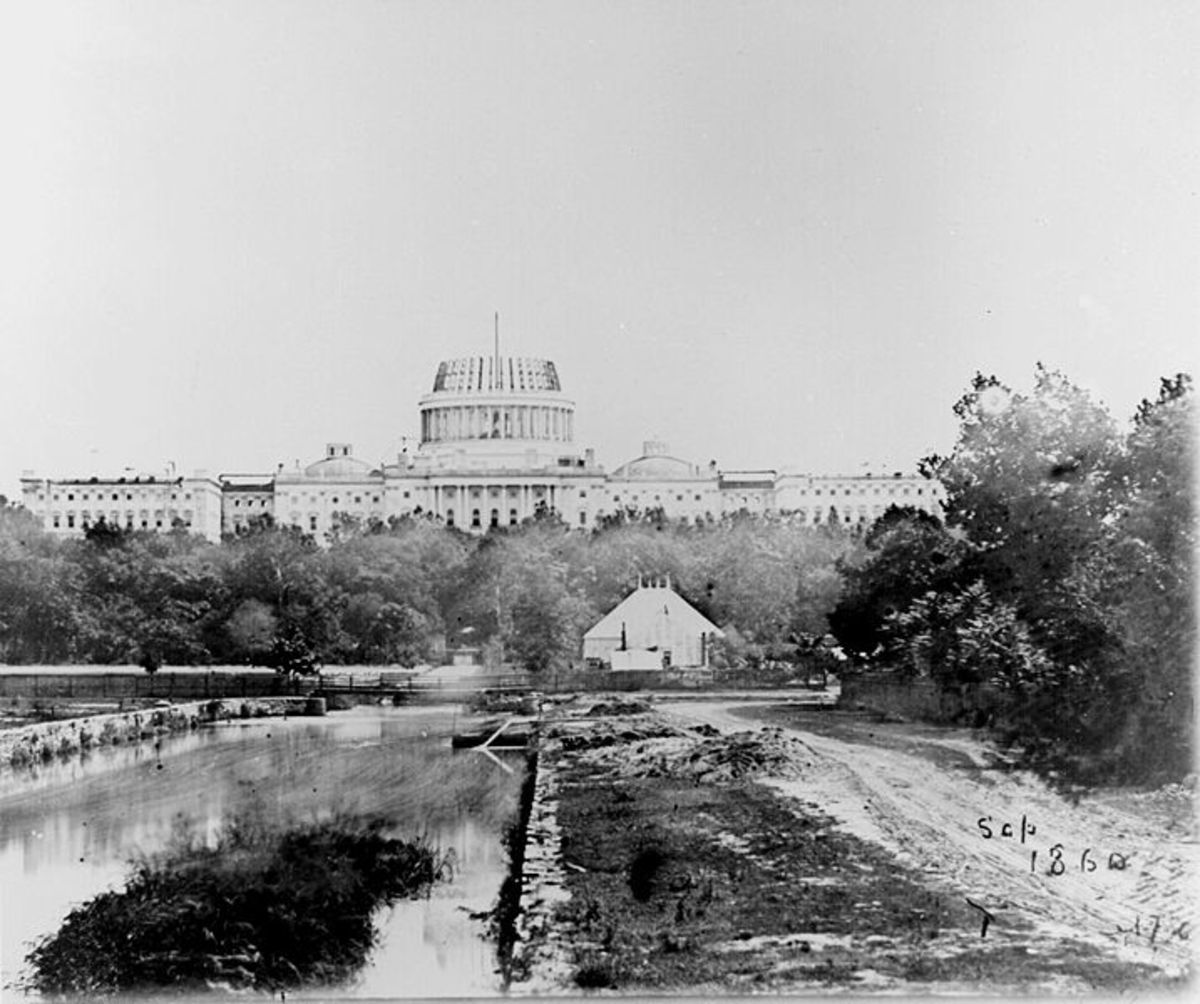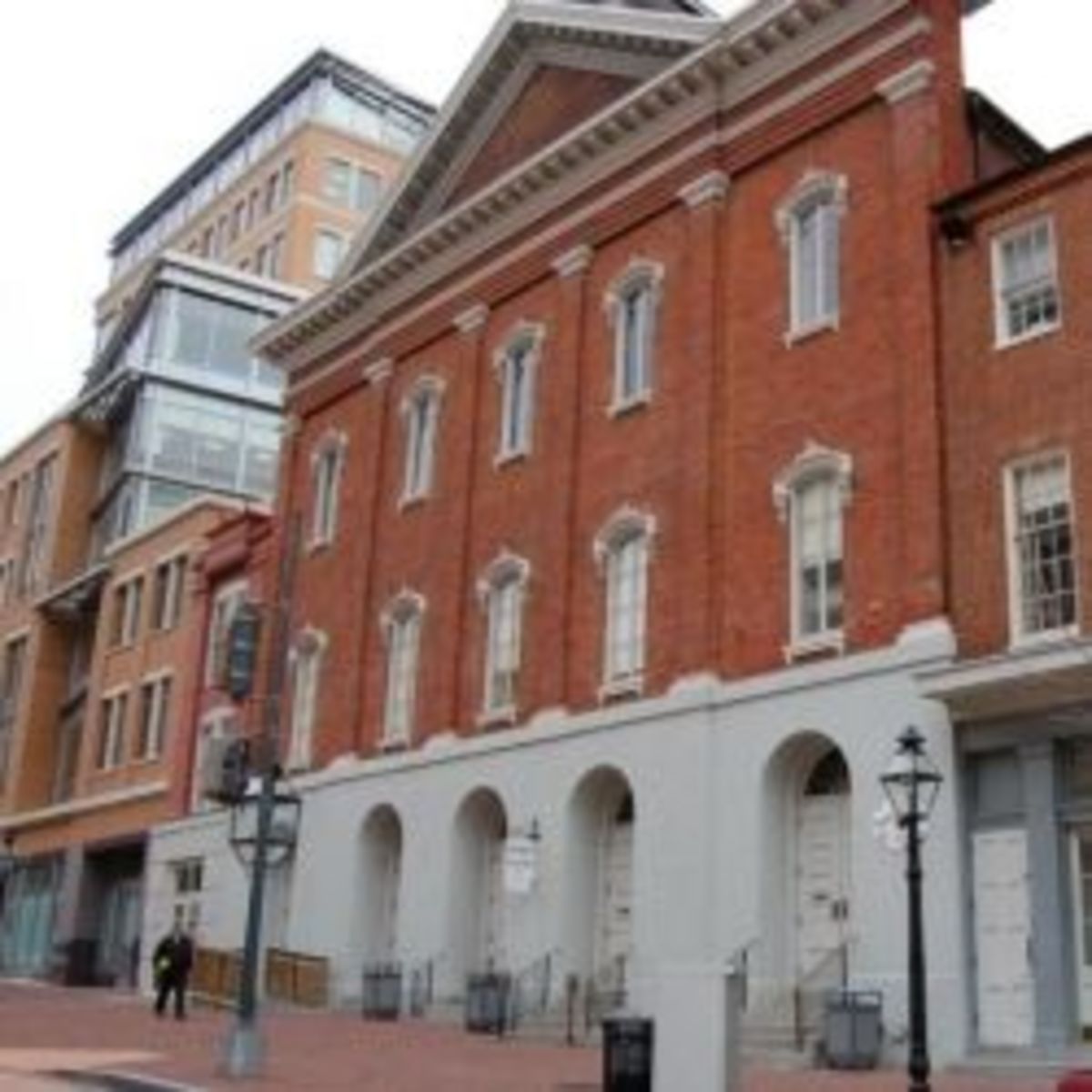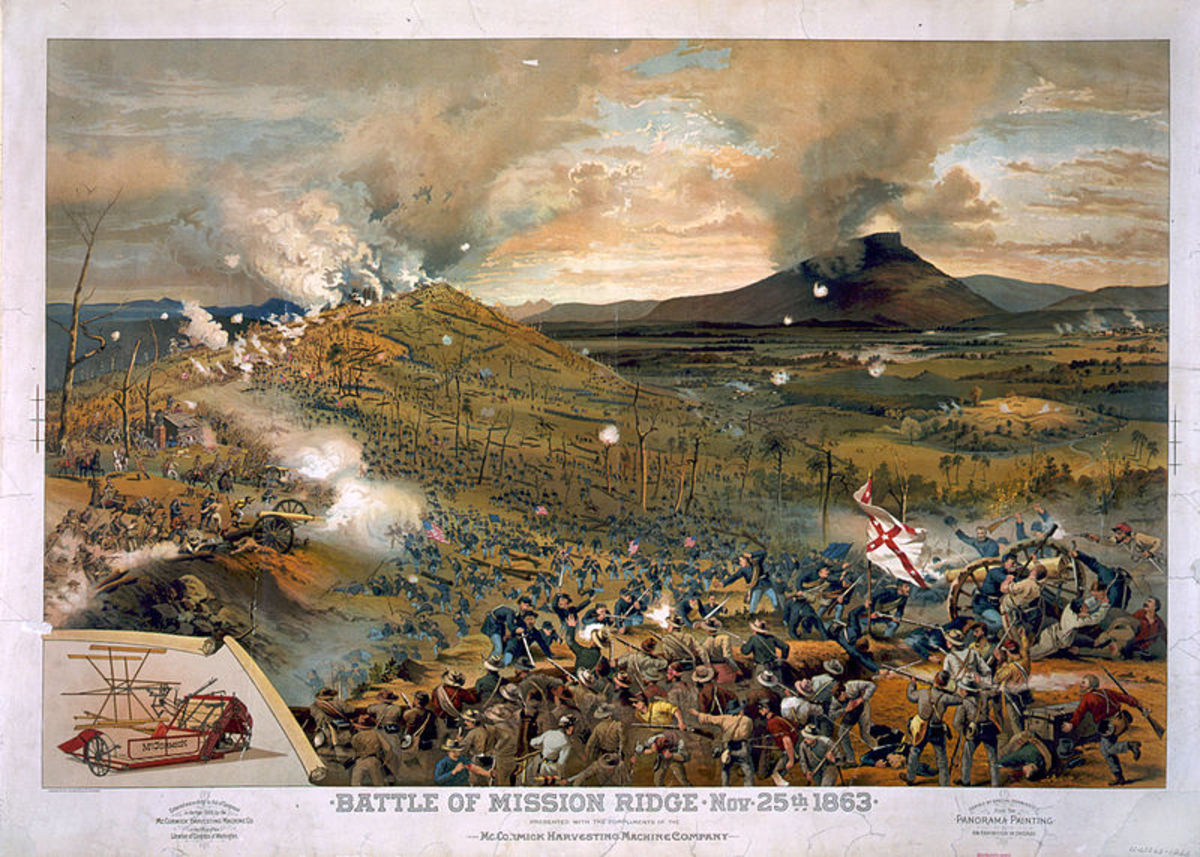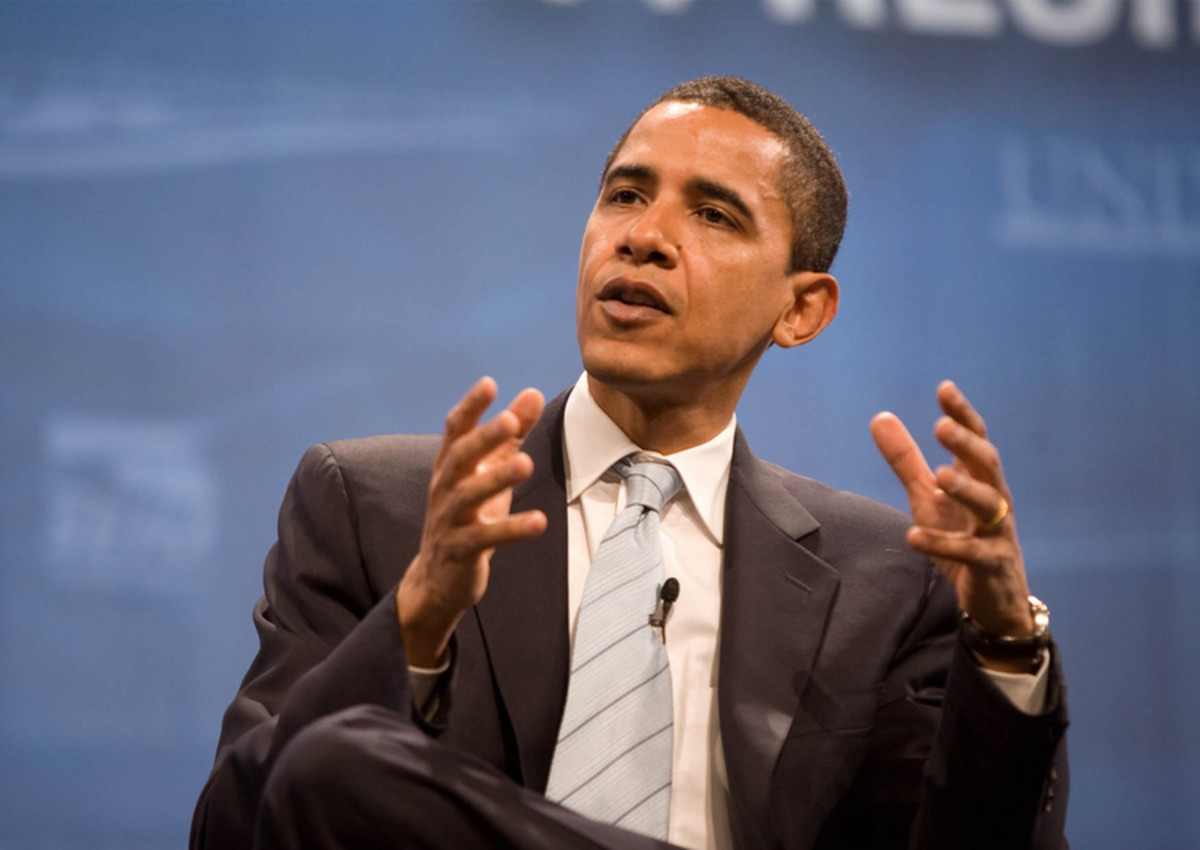Dogmas of the Past-Racism in the U.S.
THE DOGMAS OF THE PAST- RACISM IN THE U.S.
150 years ago, the Civil War ended and slavery was legally abolished by the passage of the 13th amendment in 1865. The enactment of the 14th and 15th amendments several years later, granting citizenship to the ex-slaves and guaranteeing them all the rights of any American supposedly closed the book on a tragic saga in U.S. history. We know that did not happen. African-Americans in the South were relegated to the status of second-class citizens for almost another 100 years, as segregation, and its inherent prejudice, became the law of the land. Even with the civil rights victories of the 1960’s, recent events have revealed a systemic racism still very prevalent in many areas of the nation. The nightly news is saturated with the shootings of young black men, mostly in poor urban areas, such as Baltimore, with understandable anger that such bigotry could exist in the 21st century. The media, of course, does not help with its overblown and sensationalistic coverage, or presidential candidate Hillary Clinton releasing her meaningless sound-bite, “I will end racism in America.” What went wrong?
Maybe the trouble is that racism has never been honestly and squarely confronted in the United States, but tolerated openly during the Jim Crow days of the South, and left simmering beneath the surface since the 1960’s. Alexis deTocqueville, the Frenchman who traveled in and wrote extensively on pre-Civil War America, commented, “Americans at the end of slavery will still have to destroy three prejudices each more intangible and more tenacious than it: the prejudice of the master, the prejudice of race, and finally, the prejudice of the white.” A harsh and unpleasant truth, but a reality nonetheless. Bigotry had 250 years, since the first African slaves arrived at Jamestown, Virginia in 1622 until the outbreak of the Civil War, to sink its talons into the American psyche. It would not be quick or easy to uproot. The one public person in our past, who saw this clearly, also happened to be the man at the center of the storm- Abraham Lincoln. The explosive nature of this issue perhaps has led our 16th president and his motives to be misunderstood, hindering a thoughtful investigation concerning what he believed to be the best course of action for the country. It is not too late to learn.
Being one of the most iconic figures in our history, Lincoln’s name has been invoked to support causes ranging from communism to pro and anti-abortion rights. Therefore, not surprisingly, his role in ending slavery and race relations runs a wide gamut as well, his reputation ebbing and flowing with changing public opinion down the decades since his death. To some, he is the Great Emancipator, who broke the slaves’ chains; to others, a reluctant friend, at best, of the African-American, if not an outright racist. This latter stance has gained prominence recently with major academics, such as Harvard’s Henry Gates and Columbia’s Eric Foner putting out books promoting Honest Abe, the purported bigot. As history reflects not only the period written about, but the time of the writing, Gates’ and Foner’s works maybe represent the current, extreme frustration with race in the U.S. I will not venture a guess as to the motivations of these two eminent gentlemen, but do disagree with their conclusion, and how it clouds a better understanding of what Lincoln wanted to do.
The fact is nobody knows, or will ever know, Abraham Lincoln’s true feelings about race, because he never spoke of them, even to his closest friends. Historians can only guess as to what he actually thought by his written words in letters and public speeches, and from his actions. Foner acknowledges this in his book, “The Fiery Trial”, but then goes on to assert, not once but twice, that Lincoln undoubtedly shared the racial prejudices of his neighbors and used the “n”-word freely. He offers no proof, however, for these statements, and a study of the written record reveals Abe only employed the “n”-word in several addresses to emphasize the South’s intransigence toward compromising on slavery, never saying it in a derogatory fashion. The evidence points overwhelmingly in the other direction, that Lincoln was not bigoted in the least, which is extremely relevant to examining his approach to race relations, and the way forward for a post-slavery America.
Abraham Lincoln was different from his Illinois neighbors in many substantial ways, and not just because he rose from impoverished beginnings to president of the U.S. Very strange for his time, a term he often used to describe himself, Lincoln did not swear, drink, smoke, hunt, or belong to an organized church. Abe also possessed an unusual sympathy for the few Native and African-Americans he happened to encounter, as well as abused animals, a trait definitely uncommon in the rough and tumble farming frontier of the mid-west. Of greater import, despite having more books written about him than any other person in history except Jesus Christ, no historian has uncovered a single act of racial prejudice committed by the lanky lawyer. Most notably, after meeting the president at the White House, the famed abolitionist, Frederick Douglass, said Honest Abe was the only prominent white leader who ever treated him as a complete equal, and never mentioned the difference between them- that they were not the same color. A declaration which speaks volumes about Lincoln the man, and also perhaps the high-ranking members of the anti-slavery movement, whom Douglass knew intimately.
To take a closer look at Lincoln’s tackling of slavery and race, a brief review of how the struggle developed is needed. By 1830, when Abe turned 21, bondage had disappeared in the Northern states, though free blacks living there were given few or none of the rights enjoyed by whites. The issue of slavery presumably had been settled permanently 10 years earlier, with the passage of the Missouri Compromise, which drew an imaginary line mid-way through the country out to the Pacific Ocean; no slavery above in northern areas, bondage permitted below in southern territories. Lincoln himself was born in a slave state, Kentucky, and grew up in two states, Indiana and Illinois, which although free, were primarily settled by southerners, who did not take too kindly to African-Americans. The abolitionist, or anti-slavery crusade, began in the 1830’s, with loud denunciations ringing out of slavery as a mortal sin, and the sinner slaveholders who allowed it to exist. The South closed ranks around its “peculiar” institution, many now asserting it was not just a necessary evil bequeathed to them by their forefathers (a long-time balm to southern consciences), but rather a positive good, the best arrangement for both blacks and whites. An uneasy status-quo would last until the late 1840’s, when the Mexican War added vast new lands to the nation.
The dispute over whether to allow slavery in these territories or any other as yet unsettled possessions of the U.S. would culminate in 1861 with the outbreak of civil war between the North and South. At first, it seemed if Abraham Lincoln might play little or no role in the great national drama unfolding. He served one unremarkable term as a Representative in Congress from 1847-49, garnering scant attention for his efforts to indict President Polk for starting the Mexican war unnecessarily, especially since the major fighting ended before Lincoln even got to Washington. Returning to his law practice in Springfield, Illinois, he believed his days in politics were finished. The enacting of the Kansas-Nebraska Bill in 1854, however, would thrust him back into the fray. Sponsored by Illinois Senator Stephen Douglas, the law tried to end the controversy once and for all (along with propelling Douglas to the presidency), by giving settlers in new areas the right to decide themselves if slavery would be permitted.
Abraham Lincoln considered Kansas-Nebraska a monumental mistake, and a betrayal of what the founding fathers intended concerning slavery. He believed the Revolutionary Era had placed the institution on the ultimate road to extinction by forbidding its expansion in the Northwest Ordinance of 1787. Slavery already existed in the South, and had constitutional protection there, but halting its spread would eventually lead to its dying out. Lincoln’s outlook on bondage and its extermination basically did not change until the Civil War accelerated the timetable he originally envisioned: gradual emancipation, compensation for slave-owners, optional colonization outside the U.S. for ex-slaves. He felt this method might provide the smoothest transition for the entire country, with the least amount of upheaval. The freed slaves would be given education, and assistance in developing means to support themselves. The black and white populations could ease into their new standing with each other. As Lincoln famously put it in an 1863 letter, he hoped for the adoption of some “practical system where the two races could gradually live themselves out of their old relation to each other, and both come out better prepared for the new.”
This approach has been bashed by many historians as too slow, weak, and bigoted, but compare it to what actually happened. Some slaves were freed by the Emancipation Proclamation in 1863, the rest two years later by the 13th amendment. In little more than a decade, however, the vast majority of African-Americans in the South had been returned to a state of slavery in everything but name. Second, how could you possibly want to pay the slaveholders for freeing their slaves? Unsavory as it was, slavery represented the largest investment in pre-Civil War America, well over $1 billion. Giving the owners at least some remuneration would diminish their financial losses, and perhaps make them more amenable to the new reality. In addition, as Lincoln tried unsuccessfully to get loyal slave owners and the nation to acknowledge during the war, funding compensated emancipation would only be a miniscule fraction of the conflict’s cost, not even counting the immense toll in human lives. He also warned that the struggle was eating away at the institution, and slave holders might lose their slaves anyway, and get nothing for them. They refused to listen, and it came to pass as Lincoln foretold. Colonization had been advocated by such notable figures as Thomas Jefferson and Henry Clay, but unlike these estimable men and the majority who supported it, Abraham Lincoln never favored mandatory re-settlement for freed slaves outside the U.S. His refusal to call for forced removal of the African-American population shows he realized most of them did not want to leave the country, yet aid should be given to those who wished to depart, and the option softened the shock to white Americans who feared what emancipation might bring.
Lincoln based his arguments against slavery on the U.S.’s founding document, the Declaration of Independence, and its assertion that all men are created equal, with certain rights, including life, liberty, and the pursuit of happiness. He shied away from religious condemnation, the tactic employed by many abolitionists, as claiming to know the Almighty’s will can be perilous, and besides, Southerners invariably quoted Bible passages that seemed to support bondage. In contrast to most opponents of slavery, Lincoln called the institution a “monstrous evil”, but would not vilify the slave-owners themselves. He used the biblical injunction, “judge not, lest you be judged”, and fully comprehended that the freed slaves and their ex-masters needed to live together in the post-war South. In addition, denouncing the people of the South only made them more defensive, and resistant to change.
Adherents of Honest Abe the racist undoubtedly point to pronouncements he made during his famous 1858 debates with Stephen Douglas in the Illinois Senate election as proof of their views. His supporters tend to somewhat embarrassingly dismiss these utterances as politically expedient, made in the heat of a hotly contested campaign. I disagree with both these versions. Lincoln wanted to keep the focus of the electorate on the immediate problem of slavery extension in the territories, and not the more explosive one of post-slavery race relations. Feeling Abe was getting the better of him, Douglas pulled out the race card- declaring Lincoln wanted full equality between blacks and whites, along with intermarriage- thus forcing a discussion of it. Illinois at the time was heavily anti-slavery in its northern section, but very pro-South in its southern counties. Honest Abe gave what appeared to be completely contradictory answers to the question of race equality in the opposing areas, just pandering to his audience like many politicians, but a closer scrutiny of what he said reveals he actually did not. America has never produced a more astute politician than Abraham Lincoln, but he displayed throughout his career that ethical behavior and politics do not have to be mutually exclusive. One perhaps might argue that he should have articulated both sentiments in the two regions, but as Benjamin Franklin noted, politics is the art of the possible.
In northern Illinois, he stated what should be, but was not at the moment, that the nation needed to stop quibbling about different races and superior/inferior peoples, and allow everyone, no matter their color, to live in peace as equals. For audiences in the southern part of the state, Lincoln provided a brutally honest assessment of current conditions, without saying it was right or fair, but perhaps calming the anxieties of his mainly prejudiced listeners by the sentiments expressed. He did not believe there could be equality between blacks and whites at that time, because the country was not ready for it yet, and might never be fully prepared. A racist would have said that black inferiority prevented the two races from existing as equals, as his opponent, Stephen Douglas, asserted repeatedly. The only difference Lincoln ever proclaimed between black and white was one of color, meaning white bigotry presented the primary stumbling block, not African-Americans themselves. The best public servants try to take what is and what should be, and mesh them together as close as possible. That is what Abraham Lincoln attempted to do with race relations in the U.S., understanding it would not happen overnight or by the stroke of a pen.
Critics of Lincoln’s actions concerning slavery as president during the Civil War from 1861-65, maybe minimize the fact he was not dealing with the issue in a vacuum. He needed to keep a not very cohesive North united behind the war, including many who only wanted to fight to save the Union, not free the slaves. He coaxed these people along, trying to educate them that bondage was the true cause of the conflict, and must end with it. Obviously, if the North lost, the nation would be broken apart, and nothing could be done about slavery. There were also legal restraints, which is why the Emancipation Proclamation only freed those slaves in still rebellious areas, a move taken under the president’s war powers. Lincoln possessed no authority to free those in states controlled by the North; constitutional amendment had to do that, which it eventually did.
Great controversy also surrounds Abraham Lincoln’s intentions toward the South after the war. His plea for leniency, and desire to get new southern state governments up and running as fast as possible lead many to feel he would have been too soft on the South, letting the ex-rebels basically re-enslave the blacks. I do not think so. As Frederick Douglass observed, though often frustrated by Lincoln’s perceived hesitation concerning slavery, once Honest Abe took a position, he did not retreat from it. Bondage had finished, but the implementation schedule for the freed slaves’ rights became the sticking point between Lincoln and the Radical Republicans/abolitionists, who wanted full equality immediately. Abe thought if the national government attempted to force it right away upon the South, instead of a gradual approach, African-Americans would not get what they deserved. Sadly, Lincoln proved right, but was not around to do anything about it. Federal troops tried to enforce black civil rights in the South from 1865-77. When the North tired of Reconstruction, however, and the soldiers left, Jim Crow flew in. The tragic irony of the debate concerning Abraham Lincoln’s racial views is that he was shot after advocating a start to the freed slaves’ civil rights process by giving the vote to the 150,000 African-Americans who served in the Union’s armed forces during the war and prominent black leaders, like Frederick Douglass. Presented in an address two days before his assassination, a member of the crowd listening, happened to be John Wilkes Booth, who turned to a friend, remarking, “This means the “n” word equality, that is the last speech he will ever give.” It was.
What of the Abraham Lincoln and slavery saga is relevant today, besides the country could really use a leader like him at the moment? Two things, in particular, come to mind. First, that education and opportunity are the keys to a tolerant, vibrant, and free America and world. Lincoln hoped the Civil War would not only break the shackles of African-Americans, but all people, providing everyone the chance to lift themselves up in life, like he had done. Second, denounce racism and try to combat it, but not a personal condemnation of those responsible. Shouting and pointing fingers at each other does not help anybody, only gets people angry and defensive, making progress that much harder. As Abraham Lincoln said, we must disenthrall ourselves, and think anew.
“The dogmas of the quiet past are inadequate to the stormy present. The occasion is piled high with difficulty, and we must rise with the occasion. As our case is new, so we must think anew, and act anew. We must disenthrall ourselves, and then we can save our country.
Fellow citizens, we cannot escape history. We...will be remembered in spite of ourselves. No personal significance or insignificance can spare one or another of us. The fiery trial through which we pass, will light us down, in honor or dishonor, to the latest generation. In giving freedom to the slave, we assure freedom to the free- honorable alike in what we give, and what we preserve. We shall nobly save, or meanly lose, the last best hope of earth.”
- Abraham Lincoln 1862






